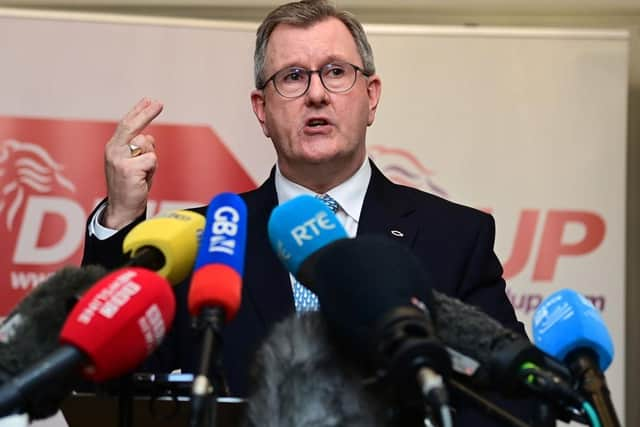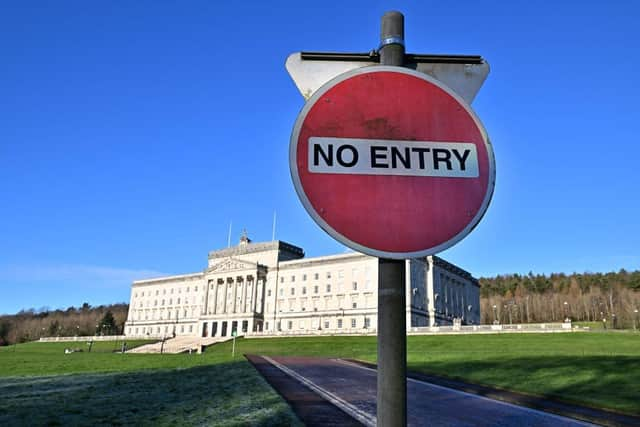Brexit deal will see Stormont resume after two years - but at what cost for the DUP?
When I was in Stormont last February as the UK government announced its plans for a deal with the European Union over trade borders in the Irish Sea, it was eerily quiet.
Advertisement
Hide AdAdvertisement
Hide AdThe deal was not agreed by the main unionist party in Northern Ireland, the DUP and little further progress was made.


Now, a year on and after 726 days of suspension, the devolved government of Northern Ireland finally looks set to resume – potentially as early as this weekend.
In a statement made in the early hours of the morning, Sir Jeffrey Donaldson, leader of the DUP, announced his party had finally agreed a deal over Brexit. The meeting was shrouded in secrecy for security reasons – yet protesters gathered at the gates and leaks appeared on social media as party members divided over the issue.
The UK government is expected to publish the deal in full on Wednesday, and pass the legislation in Parliament on Thursday. This could then lead to a recall of the Northern Ireland assembly by Friday, or even Saturday.
First minister of Stormont, Paul Givan, had resigned weeks before my visit – a year after the DUP walked away over disagreements surrounding the trade of goods after Brexit. Under a power sharing deal agreed in the Good Friday Agreement in 1998, both republican and unionist sides need to take part in the assembly for it to operate. Since then, MLAs have been on full pay – but unable to do their jobs.


Although full details of the agreement have not yet been revealed, Sir Jeffrey has referred to there being zero checks and paperwork for goods moving from Great Britain to Northern Ireland, a significant move away from the Windsor framework, the UK-EU agreement that changed the Ireland and Northern Ireland protocol.
How this latest agreement has been agreed with the EU is currently unclear. The fundamental problem of whether there is a border in the Irish Sea – or across the currently unmarked border between Northern Ireland and Ireland – is, on the surface, an insurmountable problem.
In its latest incarnation, significantly, a Sinn Fein politician should hold the role of first minister for the first time after winning the most seats in the assembly elections last year. The DUP – which previously held the first minister post from 2007 to 2017 and again from 2020 until 2022 - will offer up a deputy first minister. However, despite the titles, the roles hold equal weight in terms of power.
Advertisement
Hide AdAdvertisement
Hide AdPerhaps most significantly for people in the province, normal parliamentary business can resume. Bills can pass through Parliament, while health and education budgets can be considered again.
However, the devil will be in the detail. Sir Jeffrey is facing opposition from some DUP stalwarts and other unionist voices who believe the party should stand firm on its beliefs, many of whom protested last night as the deal was announced. What effect that will have on the long-term future of his political career – and the trajectory of the DUP in Northern Ireland – remains to be seen.
Comments
Want to join the conversation? Please or to comment on this article.
